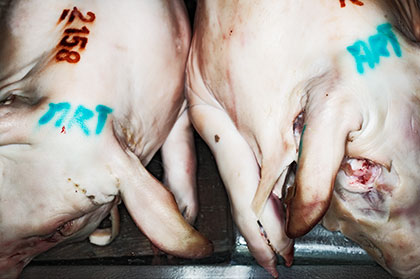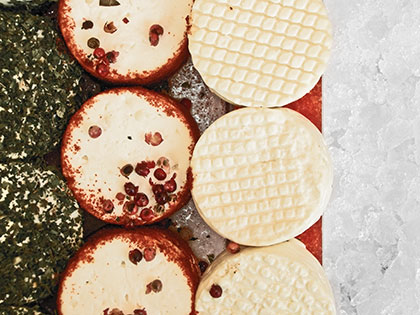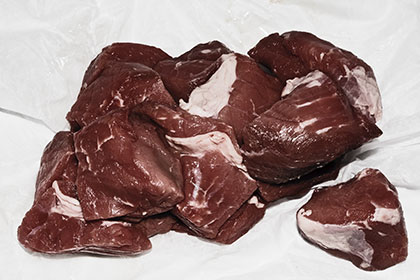I have been crazy-busy at work for the past couple of months, so that’s why I neglected my culinary contributions to Jens’ blog. But I am back in the city now, and ready to throw myself again in the world of the young artist here. (Remember, I’m an expatriate architect, born in Northern Italy, and I sometimes like to muse about the difference between this down-to-earth profession and the loftier vocations of my artsy friends.) So, last night my German friends here in NYC took me to an absolutely not-to-be-missed gallery opening: Jürgen Teller, at Lehmann Maupin.
There, I had occasion to ask myself: What is German about German photography? Answer: A burnt German sausage with smelly Sauerkraut, served in front of the gallery, under the banner of Lufthansa.

But what else? Maybe it is politically incorrect to say, but wasn’t a certain kind of ‘depressingness’ a major element of earlier German art? This is what weighed me down last night. The photos are, to my humble taste, pitiful. Why would a grown-up man place more or less naked women in front of a tree or on a sofa, make a picture, and not think of this as deeply depressing?
(Depressing as in: depressing that there could still be people who consider this ‘shocking’; depressing that the young women probably think they are part of something great, namely art; depressing that the photos look only slightly different, if at all, from the endlessly many even more depressing amateur photos, where the amateur tries to become an artist by undressing his girlfriend and making such photos; and so on.)
However, you might say that you always knew that Italians have no taste in art. Or for that matter, in food.


